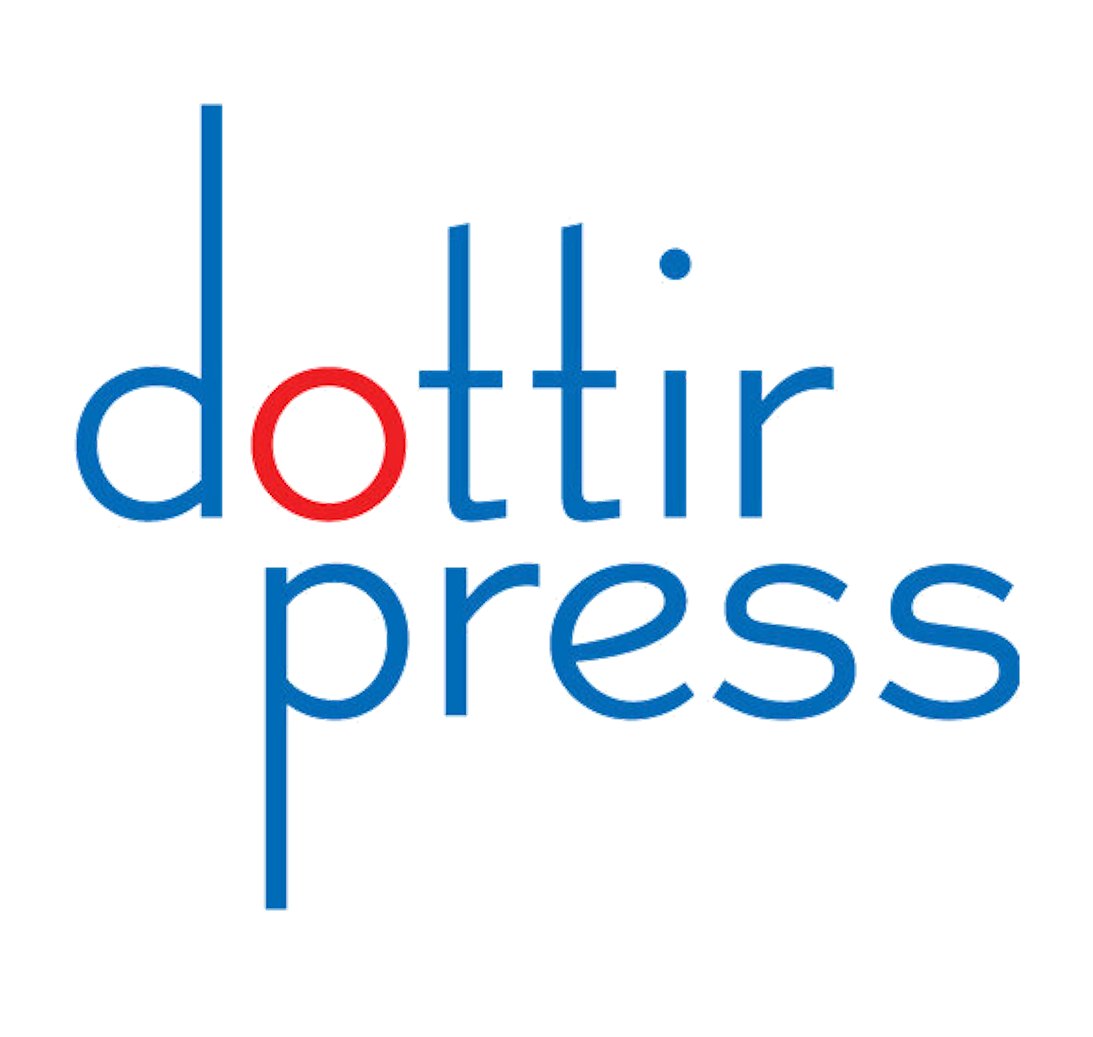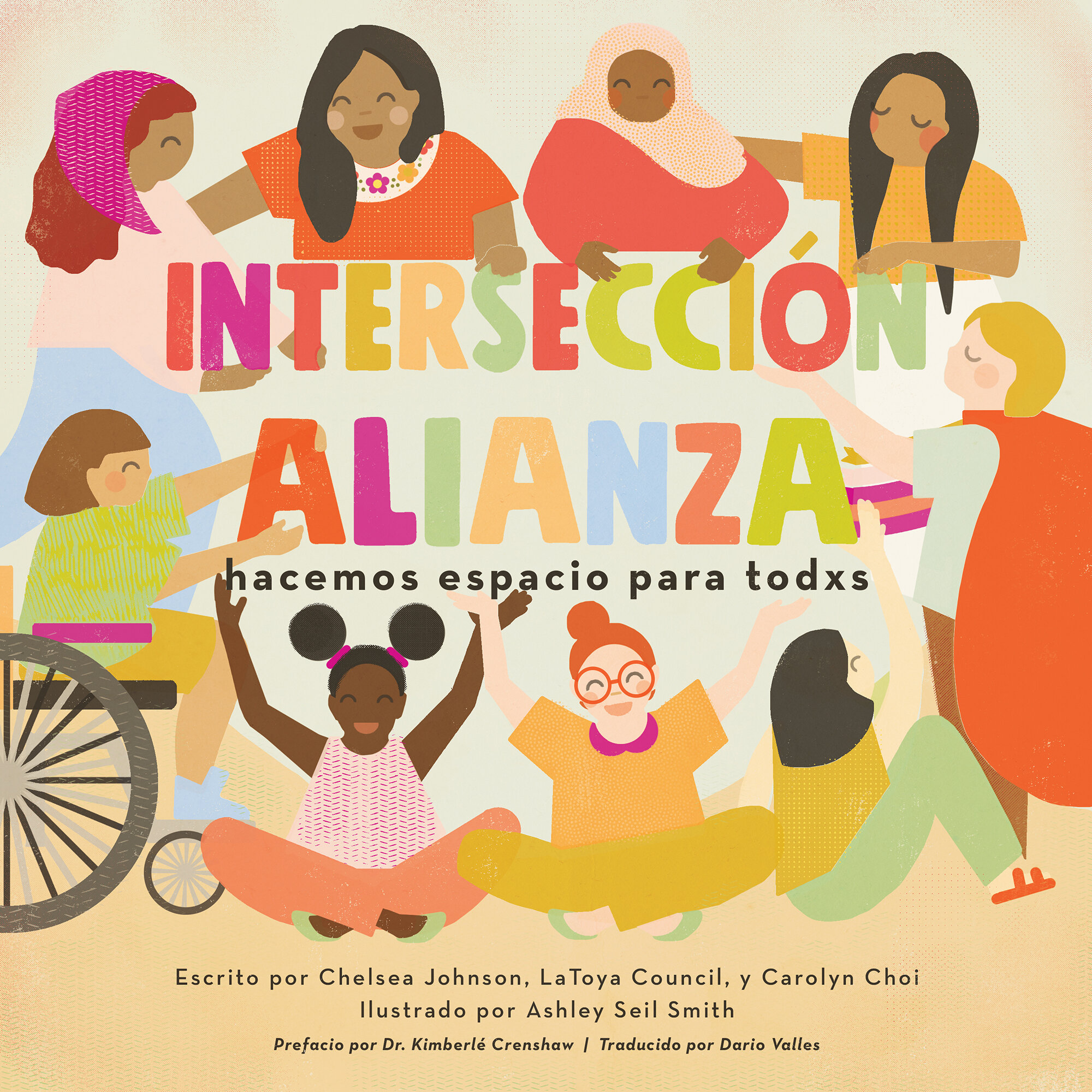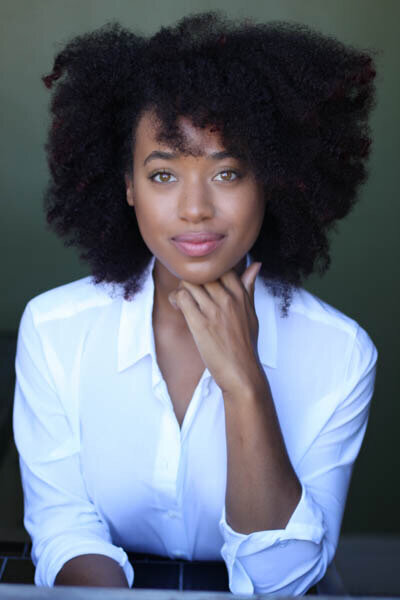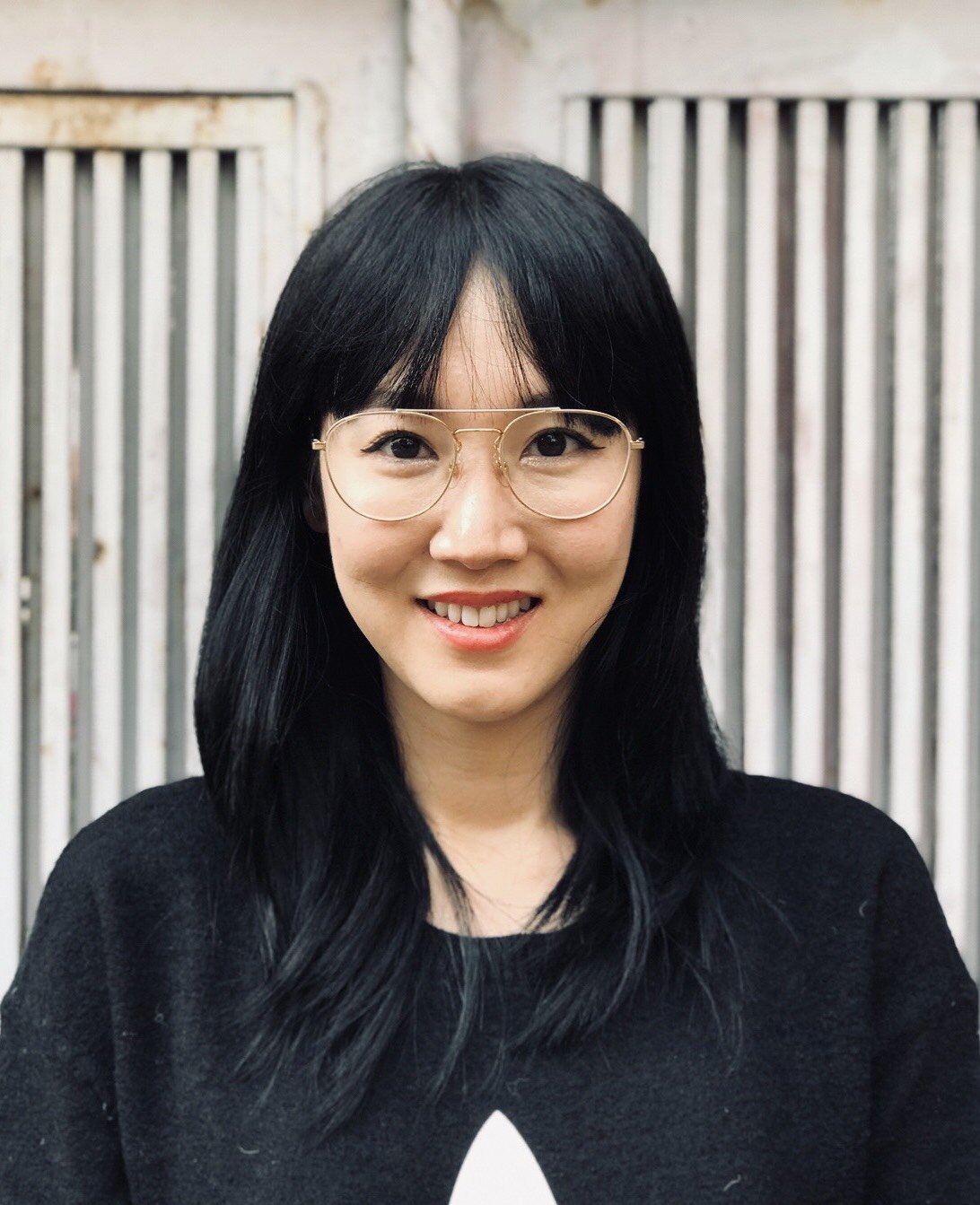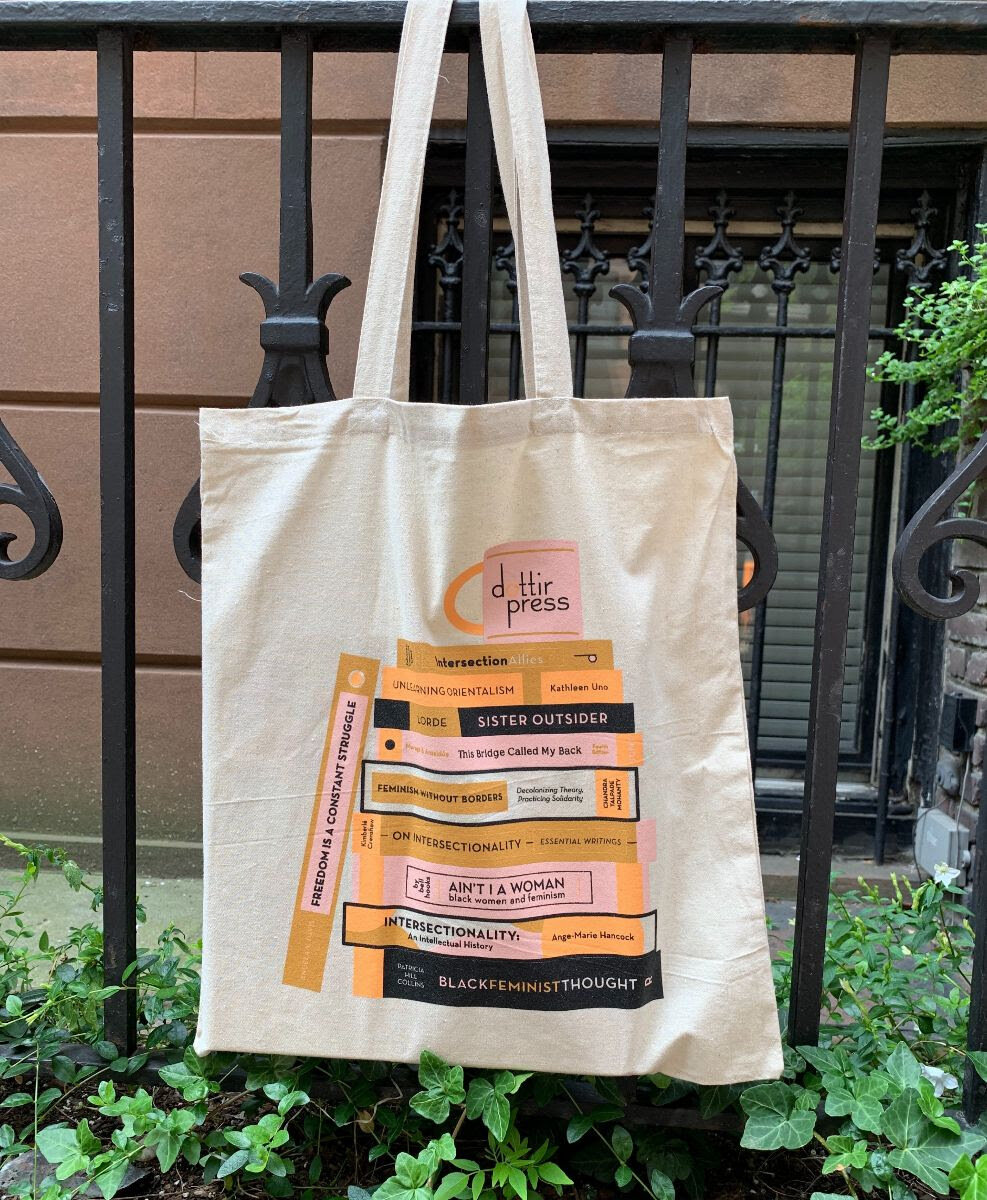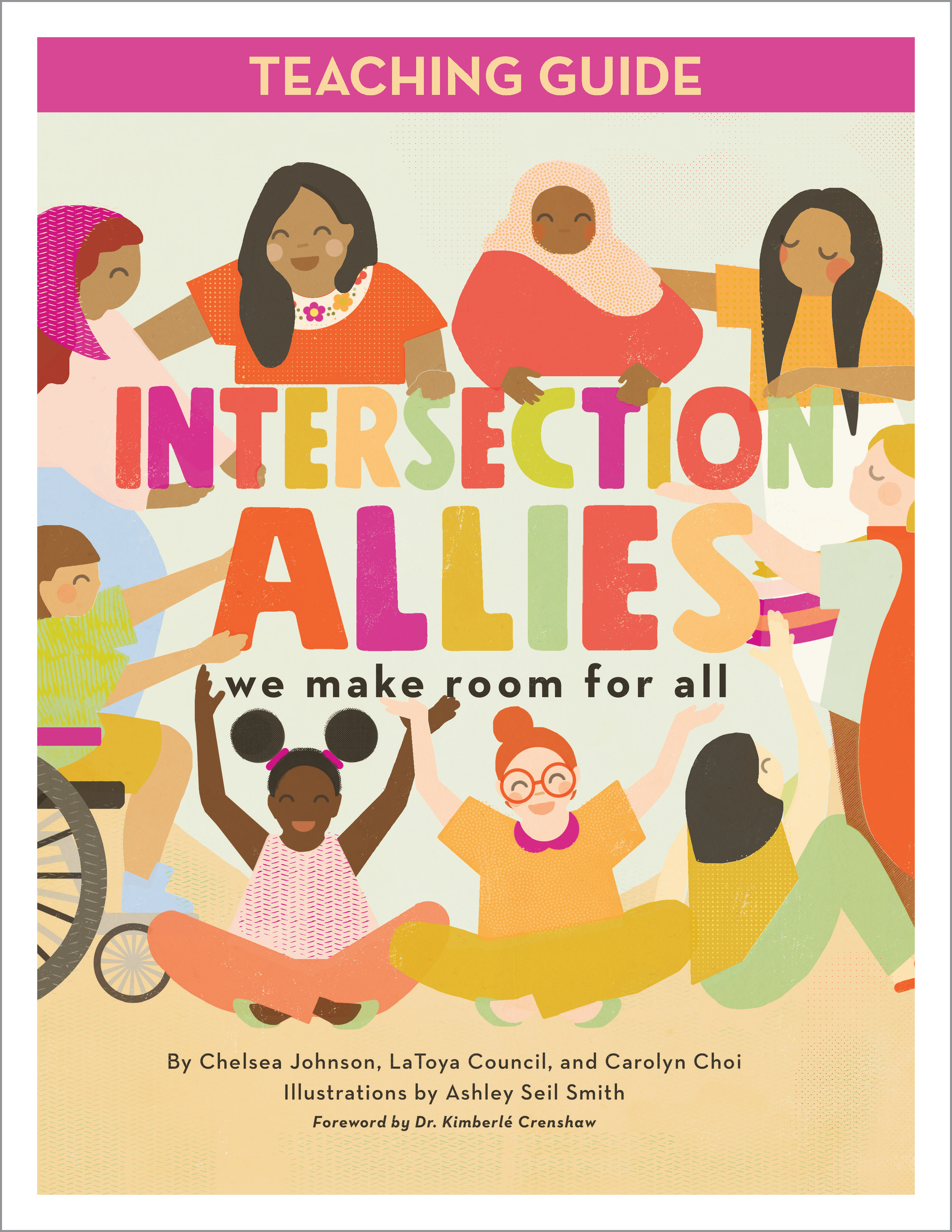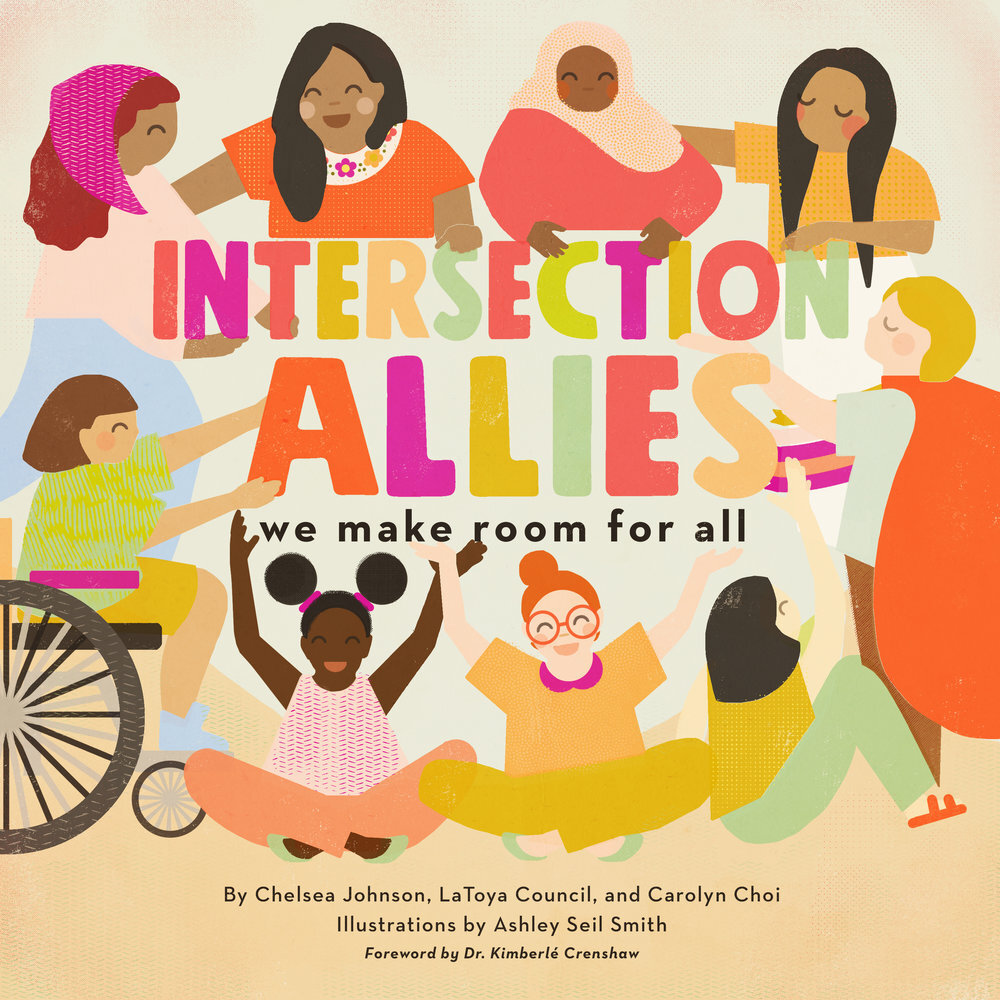Other ordering options
Order at your local indie bookstore with IndieBound
Or, support indie bookstores by buying at BookShop
For bulk orders, contact jb@dottirpress.com
Intersecciónalianza:
hacemos espacio para todxs
By Chelsea Johnson,
LaToya Council, and Carolyn
Choi. Forward by Kimberlé
Crenshaw.
Illustrated by Ashley Seil Smith
Translated by Dario Valles
On Sale April 20, 2021
ISBN: 9781948340410
The Spanish language version of IntersectionAllies, translated by Dr. Dario Valles
Escrito por tres sociologas de color, Intersecciónalianza: hacemos espacio para todxs es una entrada jubilosa al feminismo interseccional.
El libro explora temas de diversidad, como discapacidad fisica y ser un intermediario de idiomas para su familia, de una manera que hace que lxs ninxs se sientan orgullosxs de su historia personal y se conecten con la lucha colectiva por la justicia.
Cuando la vida se pone dificil, lxs ninxs se apoyan mutuamente por lo que son: Parker defiende a Kate, un personaje no binario que evita las faldas por una capa de superheroe; Heejung da la bienvenida a Yuri, una refugiada que escapa de la guerra, a su comunidad; y la familia de Alejandra cuida de Parker despues de la escuela mientras su madre trabaja.
Como defensor del respeto y la inclusion, Interseccionalianza es una herramienta necesaria para aprender a aceptar la diferencia, en lugar de ahuyentarla. El libro presenta hermosas ilustraciones en cada pagina de Ashley Seil Smith, asi como poderosas presentaciones de la activista y profesora de Derecho Dra. Kimberle Crenshaw, quien acuno el termino "interseccionalidad", y Dra. Ange-Marie Hancock Alfaro, autora de Interseccionalidad: Una Historia Intelectual.
The brainchild of three women-of-color sociologists, IntersectionAllies is a smooth, gleeful entry into intersectional feminism.
The nine interconnected characters proudly describe themselves and their backgrounds, involving topics that range from a physical disability to language brokering, offering an opportunity to take pride in a personal story and connect to collective struggle for justice.
The group bond grounds the message of allyship and equality. When things get hard, the kids support each other for who they are: Parker defends Kate, a genderfluid character who eschews skirts for a superhero cape; Heejung welcomes Yuri, a refugee escaping war, into their community; and Alejandra’s family cares for Parker after school while her mother works.
Advocating respect and inclusion, IntersectionAllies is a necessary tool for learning to embrace, rather than shy away from, difference. Featuring gorgeous illustrations on every page by Ashley Seil Smith, as well as powerful introductions by activist and law professor Dr. Kimberlé Crenshaw, who coined the term “intersectionality,” and Dr. Ange-Marie Hancock Alfaro, author of Intersectionality: An Intellectual History.
Read along at home!
Praise for IntersectionAllies
“The concept of intersectionality, widely known in academia but less so in children’s literature, is here broken down with ease and clarity. —Booklist
“If ever a book belonged in every pediatrician’s office, clinic, daycare, shelter, classroom and home, this is it.”—Literary Hub
“A welcoming resource for conversations about equality and social justice that shows readers how identities are made up of myriad influences.” —Publishers Weekly
“A cheerful, diverse cast of friends describe living the ally life in this progressive picture book...Their unwavering support for one another helps readers understand what intersectionality means and looks like...Highly recommended.” —School Library Journal Starred Review
"Diversity takes center stage in this welcoming introduction to intersectional feminism, a joyous affirmation of how we are all connected." —TIME
About the Authors
As a kid, I was often the only Black girl in my classrooms. Growing up as an “outsider within” my mostly white schools piqued my interest in how race, class, and gender shape social life. I gained the tools to understand my experiences as an undergraduate at Spelman College, a Historically Black College for women in Atlanta, Georgia. It was at Spelman that I became a feminist. After graduating, I began a PhD in sociology at the University of Southern California. My dissertation explored how fashion, politics, and culture relate. I traveled around the world, interviewing women with African roots in South Africa, Brazil, the Netherlands, France, Spain, and the United States about their lives. I now use research to help companies design products with underrepresented groups in mind. When I'm not researching or writing, I enjoy watercolor painting, reading fiction and eating my way through new cities.
I was raised in a single-parent mother-headed home. I would often stare at my mother in awe of her super-shero abilities to manage so many family demands while holding multiple jobs to make ends meet. These memories inspired my vision for a more inclusive world and drove me toward studying sociology at Spelman College, where I first learned about the concept of intersectionality. After graduating from Spelman, I studied the inequalities in love and how race, gender, and class intersect to inform relationship experiences for my Master's at the University of Colorado, Colorado Springs. I am currently working on my dissertation at the University of Southern California, which examines time use and self-care among Black middle-class couples. Intersectionality and the power of love frame how I do allyship and research. When not researching, I enjoy practicing meditation, cooking and hanging with my cat Mimi.
The Los Angeles riots were a defining moment in my childhood that shaped my identity as a second generation Korean American woman. My personal experiences with race, immigration, and gender led me to study sociology and Korean literature at UCLA. After graduating from college, I began community-based organizing at a local non-profit civil rights organization in Los Angeles, which served as my first exposure to intersectional issues facing women in the Immigrant Community. After earning a master's degree from the London School of Economics and Political Science, I entered doctoral study in sociology at the University of Southern California, where I studied the issues of Migrant labor, human trafficking, and international education. My research has taken me across the United States, South Korea, the Philippines, and Australia. In my spare time, I enjoy spreading greater awareness about the Korean arts through performing pansori, a form of traditional folk music.
About the Translator
Dario Valles
Grappling with intersectionality was integral to my upbringing as a second generation Mexican-American in an interracial family in Southern California. As an undergrad at USC, I channeled the struggles of racial discrimination and coming out in high school into establishing a queer of color student club. I’m currently working on a book based on my PhD research at Northwestern University exploring Central America and Mexico migration, education and child well-being in multi-racial California. While teaching in gender studies and anthropology at Columbia University, I am helping lead a documentary team and community research project engaging with indigenous, Black and queer and trans migrants at the US-Mexico border. To keep me energized, I love dancing to hip-hop, traveling and staying active in the Soka Gakkai Nichiren Buddhist community.
